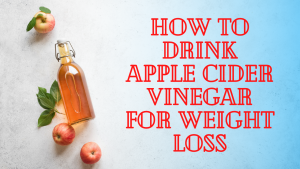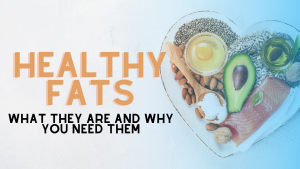How to Incorporate Collagen into Your Diet
If you’re looking to improve your skin, joint, or gut health, adding collagen to your diet is great! Collagen is a type of protein found in the connective tissues of animals. It’s been shown to have many benefits for human health, including reducing inflammation, boosting hair growth, and improving digestion. In this blog post, we will discuss the benefits of collagen and how to add it to your diet.
What is collagen?

Collagen is a protein that is found in the connective tissue of animals. It is the most abundant protein in the body, and it plays an essential role in supporting the skin, joints, and bones. Collagen is made up of long chains of amino acids, and it can be found in both animal- and plant-based foods. In supplements, collagen is typically derived from the bones or skin of cows, pigs, or fish. When taken orally, collagen has been shown to improve joint pain, skin elasticity, and bone density. It is also a popular ingredient in many beauty products, as it can help reduce wrinkles and promote collagen production.
What are the benefits of collagen for human health?

There are many potential benefits of collagen for human health. Collagen has been shown to reduce inflammation, boost hair growth, and improve digestion. Additionally, collagen may help protect the skin from damage caused by UV radiation and enhance the appearance of wrinkles. Collagen has also improved joint health by reducing pain and improving range of motion. Finally, collagen may help to support bone health by increasing bone density and preventing osteoporosis.
How can you add collagen to your diet for the best results?

Adding collagen to your diet can have some benefits for your overall health. This protein is vital for the growth and repair of skin, bones, muscles, cartilage, tendons, and ligaments. It also helps strengthen capillaries and improve immunity, which can be constructive if you’re prone to colds or other illnesses. To start adding collagen to your diet, consider incorporating more bone broth into your meals. Whether you’re preparing a soup or a stew, this liquid is full of collagen-rich meat and bone scraps that will help to boost your body’s supply of this vital nutrient. You can also try adding collagen-rich foods like fish or red meat to your diet regularly and eating a variety of fruits and vegetables for their antioxidant properties, which contribute to glowing skin and healthy joints.
What are some of the top foods that contain collagen?

Several different foods are rich in collagen, a natural protein found in connective tissues throughout the body. Some of the most popular options include bone broth, organ meats like liver and tongue, fatty fish like salmon and tuna, and red fruits like strawberries and tomatoes. These foods all contain high levels of amino acids that help promote collagen production in the body. They also provide other essential nutrients that can boost overall health and vitality. Whether you’re looking to increase your collagen intake or want to add some more nutrient-dense foods to your diet, these top foods provide an excellent place to start.
How does collagen supplementation work, and is it right for you?

At first glance, collagen supplementation may seem like a rather unconventional approach to improving health and well-being. After all, collagen is simply a type of protein naturally produced by the body, and taking it in through supplements seems quite different from merely getting protein from food sources. However, there is good reason to consider collagen as an essential nutritional supplement. This is because collagen helps boost the production of other essential compounds in the body, such as growth hormones and neurotransmitters. It can also help improve skin quality and reduce joint pain due to its ability to promote connective tissue regeneration. So if you are looking for a safe, natural way to improve your overall health and well-being, collagen supplementation may be proper for you.
How does collagen supplementation work?

Supplementing with collagen is a popular way to improve skin health, but how does it work? Collagen is a type of protein found naturally in the skin, and it helps to provide structure and strength. As we age, our bodies produce less collagen, leading to wrinkles and other signs of aging. By taking collagen supplements, we can help replenish these levels and improve the appearance of our skin. In addition to improving skin health, collagen also has benefits for joint health. Supporting the connective tissues in the joints can help to reduce pain and inflammation. For best results, collagen should be taken daily on an empty stomach. This allows the body to absorb the maximum amount of the protein and put it to work where it’s needed most.
FAQS about How to Incorporate Collagen into Your Diet
What is collagen, and why is it essential for our health? Collagen is a naturally occurring protein found in our bodies that helps to keep our skin, bones, and joints strong and supple. There has been a surge of interest in adding more collagen to our diets to take advantage of its many health benefits in recent years. But how can we do this effectively? Here are some frequently asked questions about incorporating collagen into your diet:
How much collagen do I need to eat each day to benefit from its effects?
The recommended daily intake of collagen varies depending on age and gender but typically ranges from 20-to 40 grams per day. You can get this amount by incorporating natural collagen sources like bone broth or grass-fed meat into your diet and by using high-quality supplements.
What are some excellent sources of dietary collagen?
Some of the best food sources of dietary collagen include bone broth, beef marrow, dried oregano, milk kefir, ghee, organ meats like liver and heart, kombu seaweed/bonito flakes, stock powder/dashi broth powder, lotus root starch/shirataki noodles, etc., seeds like flax and chia, and nuts like almonds.
What do I need to know before taking collagen?
Before taking collagen, it’s essential to consult with your healthcare provider to ensure that it’s right for you. This is especially important if you have any underlying health conditions or are taking any medications. Once you’ve decided to take collagen, choose a high-quality product from a reputable brand.
What is the most effective way to ingest collagen?
Collagen should be taken daily on an empty stomach for the most effective results. This allows the body to absorb the maximum amount of protein and put it to work where it’s needed most. You can also mix collagen powder into smoothies, soups, or other recipes for an easy way to get your daily dose.
How does taking collagen to improve my skin health?
Collagen is a protein type that helps keep our skin firm and supple. As we age, our bodies produce less collagen, leading to wrinkles and other signs of aging. By taking collagen supplements, we can help replenish these levels and improve the appearance of our skin. Additionally, collagen has been shown to help reduce inflammation and promote healing, making it an effective treatment for conditions like eczema and psoriasis.
How does taking collagen to improve my joint health?
Collagen is a vital component of the connective tissues in our joints, so by taking collagen supplements, we can help reduce pain and inflammation. Additionally, collagen can help repair and regenerate joint tissue, making it an effective treatment for conditions like arthritis.
Conclusion
Collagen is a naturally occurring protein with many benefits for our health. By incorporating it into our diets, we can help improve our skin and joint health and reduce inflammation. For best results, collagen should be taken daily on an empty stomach. There are many different ways to add collagen to your diet, so find a method that works best for you. Thanks for reading!
I hope this article helped teach you how to incorporate collagen into your diet!



